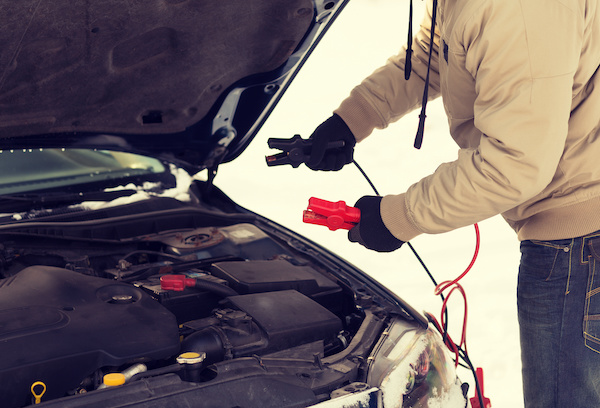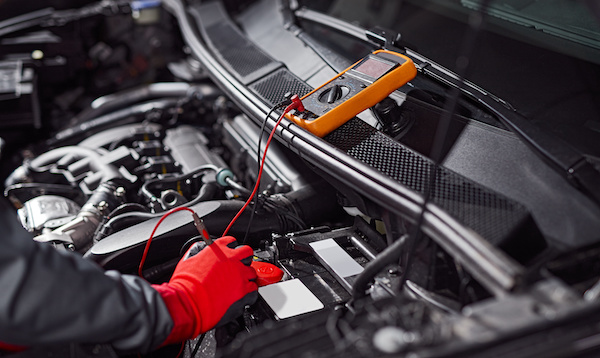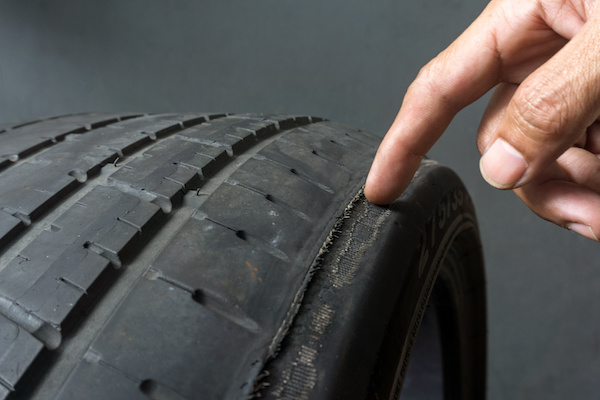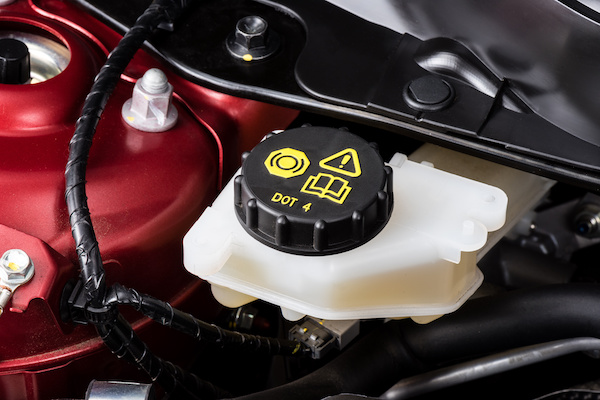Posted on 1/30/2023

It seems like every winter, more people are stuck on the side of the road with a dead battery. You may drive and see two vehicles doing a jumpstart and wonder, “is it because of the cold?”. We’re here to confirm that car batteries do not like the cold. When the temperature drops in CO, it can mess up your battery or kill it altogether. Why Do Car Batteries Die in the Winter Even though car batteries can die at any point in the year, it tends to be most affected during the winter. In the cold, the chemical reactions that occur inside the battery slow down. In other words, it means more power is required to deliver and keep the same amount of voltage. In fact, a car battery loses nearly ⅓ of its strength when the temperature drops below freezing point. How to Prevent Your Car Battery From Dying To keep your vehicle’s battery in tip-top shape this winter, here are some of our key tips! Park in a Garage - When your vehicle is parked in a garage, it is slightly i ... read more
Posted on 12/30/2022

Winter weather brings out the worst in us. From snowstorms to ice storms, winter weather wreaks havoc on our vehicles. If you've got a car, you'll want to take care of it before the cold weather hits. Winter weather can cause damage to your car. The salt, sand, and other debris from the road can corrode metal parts and rust away paint. In addition, the extreme temperatures can weaken the rubber seals around windows and doors, causing them to leak or freeze shut. But there's something you can do to save your car from extreme havoc. Here are five car care tips for you during winter weather. Tip #1: Check your Car's Oil Level Cold weather can cause oil to be thin, so check it before you head out. Always make sure it's full. If the light shows on your dashboard, add more oil! Tip #2: Check Your Tires Check your tires for the wear and tear they have taken throughout the winter. If you see any snow or ice buildup in the tire treads, you will want t ... read more
Posted on 11/29/2022

There’s nothing more frustrating than getting into your car to find that it won’t start. It can be a major inconvenience and headache, especially if it is somewhere urgent you have to be. These kinds of car issues are the ones that you simply can’t ignore if you want your car to work again. If you are having starting problems, please bring your vehicle to Rocky Mountain Car Care for an accurate diagnosis. Most Prevalent Vehicle Starting Problems There are many things that come into play when you go to start your vehicle. The problem can stem anywhere from the battery all the way to the fuel system. Let’s take a look at some of these issues. Dead Battery Vehicle batteries are just like the ones in your phone or in your TV remote – they don’t last forever. If they are more than three years old, they are likely to deteriorate. We can test your battery at our shop using a voltmeter. If it reads low, it is best to replace it. ... read more
Posted on 10/28/2022

The tires on your car are its foundation. How the car handles, the comfort and safety of the ride, all depends on the tire's tread pattern. To ensure correct maintenance, it is imperative the tire pressure is correct when inflating them. In addition, the wheels should be properly aligned, and the air level balance verified correctly. What Tire Wear Says About Your Tires How your tires wear says a lot about any issues facing your tires, or specifically speaking, your car. You need to inspect your tires regularly to check how the tires are wearing. If the wear is on the edges, outer, or center of the tire, it means something different. It is important you understand why your car's tire tread wears a certain way. Therefore, we have put together a guide to help you recognize various tread patterns and what causes them to form. Inside Tread A tire professional will normally refer to tire wear on the inside tread as "toe wear". When this happens, it means your wheel al ... read more
Posted on 9/30/2022

When it comes to your car, you want to be sure that everything is in perfect working order. The braking system is one of the most critical aspects of your car's functionality. If there are any problems with your brake fluid, it can lead to decreased performance and even failure of the brakes altogether. This article will discuss brake fluids and signs you may have low brake fluid. What is Brake fluid? Most modern cars have hydraulic brake systems. This system uses brake fluid to transfer the force from your foot on the pedal to the brakes themselves. Brake fluid is essential for your car's braking system. Brake fluid helps to keep your car's brakes working correctly. But what makes brake fluid so unique? Brake fluid needs to have a high boiling point to withstand high pressures and temperatures when braking. Brake fluid is incompressible and will not change volume when under pressure. Over time, brake fluid becomes contaminated with air or water and loses its proper ... read more